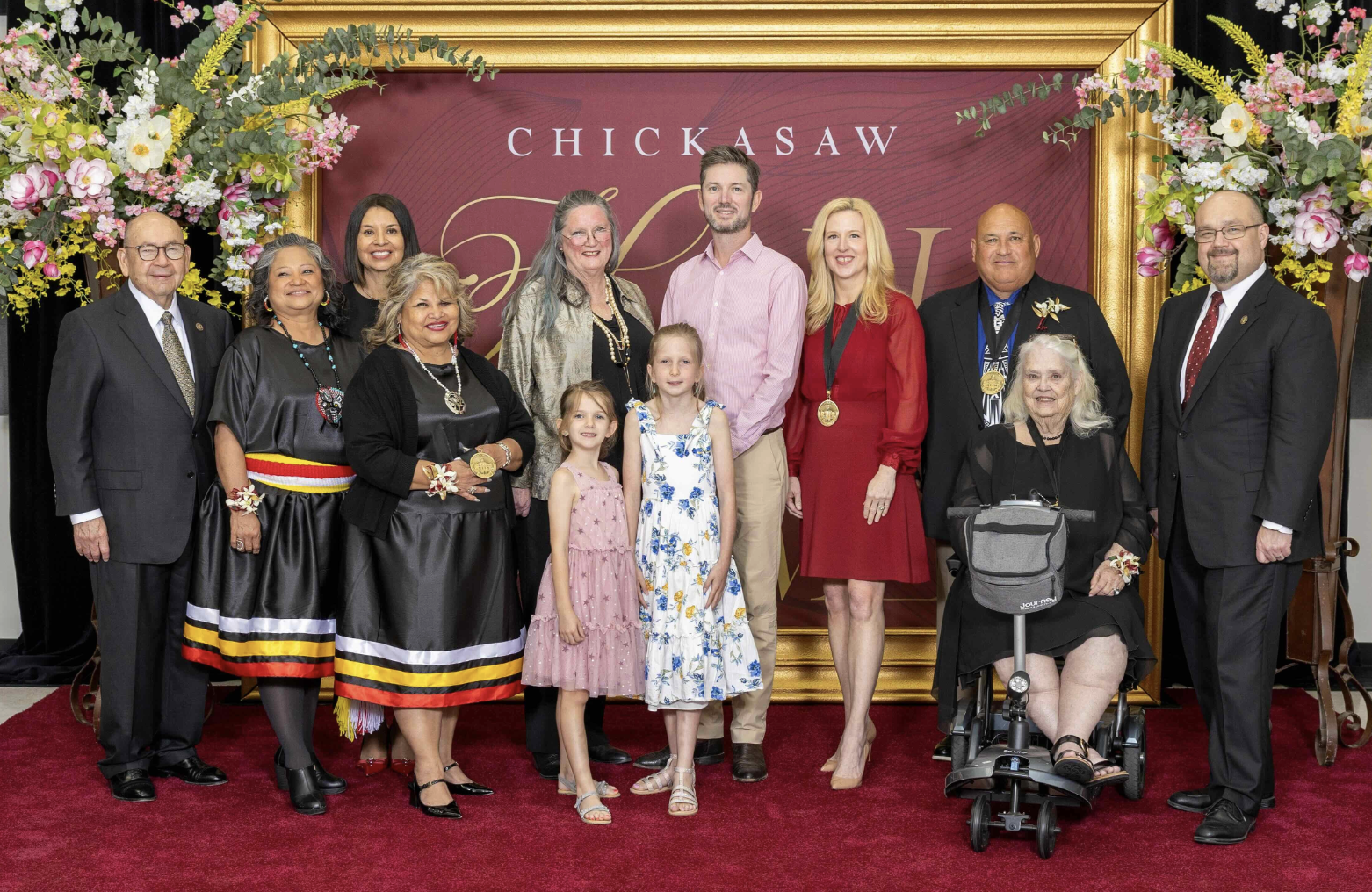
- Details
- By Native News Online Staff
The Chickasaw Nation is now accepting nominations for the 2026 class of the Chickasaw Hall of Fame, honoring citizens who have made lasting contributions to their Nation, communities, and beyond.
Eligible nominees must be enrolled Chickasaw citizens, living or deceased. Current Chickasaw Nation employees and elected officials serving active terms are not eligible. Nominees do not need to reside in Oklahoma, and submissions may be made by anyone.
Candidates should have distinguished themselves through excellence in their profession, cultural endeavors, art, public service, or other achievements that bring honor to the Chickasaw people. Nominees may also be recognized for exceptional contributions that have benefited the Chickasaw Nation or society at large.
Those selected for induction must attend the 2026 ceremony, while nominators of posthumous honorees are required to be present on their behalf.
Each new inductee will be commemorated with a personalized plaque in the Chickasaw Nation Aaholiitobli’ Honor Garden—located on the Chickasaw Cultural Center campus in Sulphur, Oklahoma. The garden’s design reflects traditional Chickasaw culture, incorporating symbols of the four directions and spirals representing life and continuity.
To view current Hall of Fame members or learn more about the nomination process, visit HOF.Chickasaw.net or explore the Honor Garden in person at the Chickasaw Cultural Center.
All nominations must be submitted online by Monday, November 3.
More Stories Like This
NCAI Passes Two Emergency Resolutions on Immigration Enforcement ActivitiesChickasaw Lighthorse Police Officer named Indian Country Law Enforcement Officer of the Year
Indian Gaming Association Rallies Broad Coalition Against Sports Event Contracts It Calls Illegal Threat to Tribal Sovereignty
Navajo Resources and Development Committee Issues Notice on Livestock Inspection Requirements
American Prairie, Tribal Coalition Files Protest Over Rescinded Grazing Rights
Help us defend tribal sovereignty.
At Native News Online, our mission is rooted in telling the stories that strengthen sovereignty and uplift Indigenous voices — not just at year’s end, but every single day.
Because of your generosity last year, we were able to keep our reporters on the ground in tribal communities, at national gatherings and in the halls of Congress — covering the issues that matter most to Indian Country: sovereignty, culture, education, health and economic opportunity.
That support sustained us through a tough year in 2025. Now, as we look to the year ahead, we need your help right now to ensure warrior journalism remains strong — reporting that defends tribal sovereignty, amplifies Native truth, and holds power accountable.
 The stakes couldn't be higher. Your support keeps Native voices heard, Native stories told and Native sovereignty defended.
The stakes couldn't be higher. Your support keeps Native voices heard, Native stories told and Native sovereignty defended.
Stand with Warrior Journalism today.
Levi Rickert (Potawatomi), Editor & Publisher


